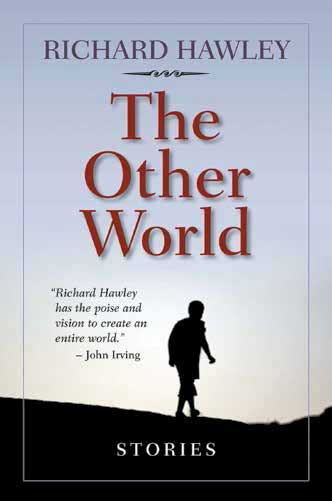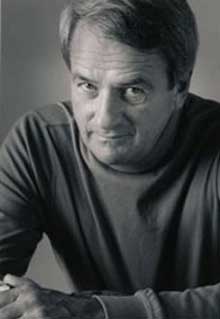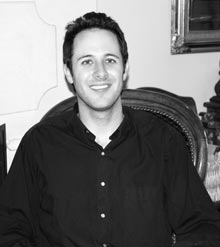
The Other World, by Richard Hawley (Short Story America)
Review by Margaret Evans, Editor
In the first story of his luminous new collection The Other World, Richard Hawley flawlessly sums up what you have always known – but didn’t know you knew – about the essence Christmas:
I cannot tell you where I got this picture, although it is a fixture in my Christmas memory. The impression is so cold and fresh that I could be there now. It is deep winter, and I am stopped still in a sloping field of cedar trees. It is late afternoon, and the sun is about to set. The sky is clear, and as I look out toward the horizon, the glass-blue overhead gives way to vivid rose and peach and shimmering gold as it meets the sinking sun on the horizon line. I am fascinated by the look of the snow resting on the branches of the cedars, how the snow holds rosy afternoon light, and all of it is saying “afterward,” as if beauty itself was explaining the end of beauty. . . Somehow the snow on the branches in the declining afternoon and the cedar boughs sparkling with lights and ornaments beyond my crib on that first Christmas morning form a single picture, and it is all Christmas, and it is forever about to begin and yet has always been over.
This is what Richard Hawley does best: He freezes those fleeting moments in everyday life – they’re more like nanoseconds, really – when ‘beginning’ and ‘end’ merge into ‘always,’ and we are blessed with the vision to see it. In simple but masterful prose, Hawley crystallizes those brief, occasional glimpses of eternity, allowing us to hold them and look at them and even feel them again. And what they feel like is all the joy and sorrow a heart can bear simultaneously, without bursting into smithereens.
Some of the stories in The Other World are funny, some exquisitely poignant. (Most, like life, are both.) And some are simply sublime from start to finish. The chapter entitled “The End of Baseball” is such perfection, I wanted to cut it out, wrap it up and give it to my husband for Christmas. (Have you ever noticed how some of the most gorgeous writing in the world is about baseball?) I use the term “chapter” interchangeably with “story,” because, though this book bills itself as a short story collection, I believe it’s actually a novel. Each story can certainly stand alone, but each one builds upon the one before it, and each is enriched by its wider context. I do not recommend skipping around. (On second thought, that might be fun if you enjoy movies like Memento and Inception.)
Hawley’s narrator/protagonist Jonathan Force evolves from story to story – from little boy to high school graduate – through a pretty typical 1950s American childhood, with all of childhood’s requisite humiliations and triumphs. But unlike most kids, young Jonathan Force is a budding writer, which means he’s growing ever more adept at being both in his life and outside of it, observing. (He can even observe himself observing.) And young Jonathan is always on the lookout for passageways to what he calls “the other world” – that sacred, invisible realm accessed and sanctified by the creative imagination.
As a child, Jonathan is a regular visitor to this ethereal realm, but as he grows older, he finds his access growing ever more limited. Eventually, he can’t seem to get there at all, and he throws himself headlong into the busy-ness of the “here and now” in an effort to dull the pain of his banishment. As camping, climbing trees and exploring tunnels give way to academic challenge, social anxiety and “the sex feeling,” Jonathan Force learns to cope with dark forces – a difficult father, a troubled sister, a controlling girlfriend – and is ultimately surprised by his own success. But he never stops longing for the other world.
Though not remotely “religious” – not in the sense that we use that word these days, anyway – The Other World is about nothing less than man’s fall from the garden . . . that Blakean trek we all make from innocence to experience. Yes, it’s a coming-of-age story, and we readers have been here before . . . but never quite like this. Though his voice is wonderfully original, Jonathan Force may remind you of a less neurotic, less angry, not-quite-so-profane Holden Caulfield; there is something slightly Salinger-esque about what Hawley is doing in these stories, I think. There is also something of C.S. Lewis’ “faroff country” in Hawley’s wistful depictions of the other world, that holy dimension that begins to lose its “mythy tug” as we age. In The Weight of Glory, Lewis writes:
In speaking of this desire for our own faroff country, which we find in ourselves even now, I feel a certain shyness. I am almost committing an indecency. I am trying to rip open the inconsolable secret in each one of you—the secret which hurts so much that you take your revenge on it by calling it names like Nostalgia and Romanticism and Adolescence; the secret also which pierces with such sweetness that when, in very intimate conversation, the mention of it becomes imminent, we grow awkward and affect to laugh at ourselves; the secret we cannot hide and cannot tell, though we desire to do both.
Other World-ly territory, to be sure. This reader is deliriously happy when she finds intimations of Lewis and Salinger in the same book – especially a book featuring praise from John Irving on the cover. We all have our favorite guides to the other world, and those are three of mine. Now I can add Richard Hawley to the list.
At the conclusion of this gently mind-blowing collection, as he prepares to leave for college, Jonathan Force is given a new revelation, a different kind of beatific vision – not so much a portal to the other world as a key to finding peace in his temporary exile. Though some readers may find the ending abrupt and even brutal, I found it beautiful and profoundly satisfying.
And then I read it again and liked it even better.
ABOUT THE PUBLISHER
The Other World is the first collection by a single author to be published by the Beaufort-based Short Story America. Publisher Tim Johnston says, “I am thrilled that Short Story America’s first collection of stories by a single author comes from a writer of Richard Hawley’s stature and understanding of the human condition. He has long been one of my favorite authors, so when he sent me this manuscript, I dropped what I was doing and read it immediately. Short Story America has published three anthologies of stories by authors around the world, and now The Other World breaks ground for individual authors’ collections as well. I am deeply honored to have had the pleasure of editing and publishing this book, which to me has ‘classic’ written all over it.”
The Other World is available from Short Story America at www.shortstoryamerica.com, with free shipping. It’s also available from Amazon. The hardcover book is 238 pages and begins with a chapter about Christmas. (A perfect holiday gift!) All three SSA anthologies (138 stories) are also available as a set, at a holiday discount, by visiting the SSA website. Signed, personalized volumes may be ordered by calling 843-597-3220.






